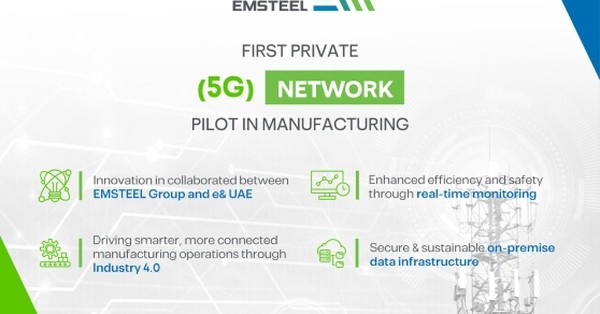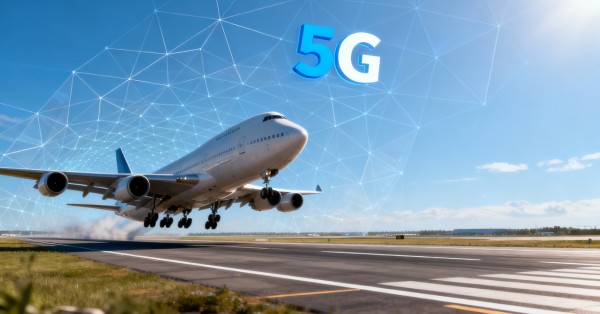T-Mobile to Acquire UScellular Wireless Operations: Delivering Superior 5G Experience and Unmatched Benefits
Un-carrier to Enhance Value and Competition, Providing More Choice for Wireless Consumers
Bellevue, Wash. – May 28, 2024 – T-Mobile (NASDAQ: TMUS) and UScellular (NYSE: USM) have announced a definitive agreement where T-Mobile will acquire the majority of UScellular’s wireless operations. This acquisition includes UScellular’s wireless customers, stores, and specific spectrum assets.
Expanding 5G Network to Underserved Areas
With this acquisition, T-Mobile’s industry-leading 5G network will extend its reach to millions of UScellular customers, particularly in underserved rural areas. This will transition customers from a limited roaming experience outside of UScellular’s coverage area to full nationwide access on the largest and fastest 5G network in the country. UScellular customers will benefit from T-Mobile’s value-packed plans, comprehensive perks, and exceptional customer support, potentially saving them hundreds of millions of dollars annually.
Enhanced Network Coverage and Performance
T-Mobile customers will gain access to UScellular’s network in previously limited coverage areas. This enhancement will improve performance throughout UScellular’s footprint by integrating the acquired spectrum into T-Mobile’s network. The increased coverage and capacity will also spur competition, benefiting wireless consumers across the country with more choices and improved services.
Benefits for UScellular and T-Mobile Customers
“This deal allows T-Mobile to extend its superior Un-carrier value and experiences to millions of UScellular customers, offering them lower-priced, value-packed plans and better connectivity on our best-in-class nationwide 5G network,” said Mike Sievert, CEO of T-Mobile. “As customers from both companies gain more coverage and capacity, competitors will be forced to improve, ultimately benefiting more consumers. The Un-carrier is dedicated to shaking up the wireless industry for the good of consumers, and this deal furthers that mission.”
Laurent Therivel, CEO of UScellular, added, “T-Mobile’s acquisition of UScellular’s wireless operations will provide best-in-class connectivity to rural Americans through enhanced nationwide coverage and service offerings at more competitive prices. Our customers will gain access to better coverage, faster speeds, and unlimited texting in over 215 countries, along with content offers, device upgrades, and other T-Mobile benefits.”
Superior Connected Experience on a Best-in-Class Network
Combining the spectrum and assets of both companies will deliver a superior connected experience on T-Mobile’s industry-leading nationwide 5G network for UScellular customers. This will provide faster and more reliable 5G service, especially in underserved rural areas.
Value-Packed Plans with No Switching Costs
UScellular customers can choose to stay on their current plans or switch to a T-Mobile unlimited plan with no switching costs. These plans include Un-carrier benefits such as streaming services and free international data roaming. Switching to T-Mobile could save UScellular customers hundreds of millions of dollars annually. They will also have access to T-Mobile’s award-winning customer service and enhanced retail support, both in-person and digital.
More Choice and Increased Competition
This transaction will create more choices for wireless consumers in areas with expensive and limited plans from AT&T and Verizon. It will also expand T-Mobile’s fast-growing home broadband offering and fixed wireless products to communities lacking competitive broadband options, helping to bridge the digital divide for hundreds of thousands of customers in UScellular’s footprint.
Proven Un-carrier Playbook for Successful Integrations
T-Mobile has a proven track record of successful mergers, such as those with MetroPCS in 2013 and Sprint in 2020, which have benefited millions of consumers by enhancing competition. Leveraging its successful integration playbook, T-Mobile aims to deliver exceptional value and experiences to more people across the country, encouraging competitors to follow suit for the benefit of customers.
Transaction Details and Financial Profile
T-Mobile will pay approximately $4.4 billion for the assets being acquired from UScellular, including a combination of cash and up to $2.0 billion of debt to be assumed by T-Mobile through an exchange offer to UScellular debtholders prior to closing. If debtholders do not participate in the exchange, their bonds will remain obligations of UScellular, and the cash portion of the purchase price will increase accordingly. Post-transaction, UScellular will retain ownership of its other spectrum and towers, with T-Mobile entering a long-term lease arrangement for at least 2,100 additional towers.
T-Mobile does not anticipate the transaction will affect its 2024 guidance or authorized shareholder return program. The transaction is expected to yield approximately $1.0 billion in effective total operational and capital expenditure synergies annually upon integration, with integration costs estimated between $2.2 billion to $2.6 billion. T-Mobile plans to reinvest a portion of these synergies to enhance consumer choice, quality, and competition in the wireless industry.
Closing Conditions and Regulatory Approvals
The transaction is subject to customary closing conditions and regulatory approvals, with an expected closing date in mid-2025.
Advisors
Cleary Gottlieb Steen & Hamilton LLP and DLA Piper LLP are serving as legal counsel to T-Mobile.
This acquisition marks a significant step for T-Mobile in expanding its 5G network and delivering superior value and experiences to a broader customer base, while enhancing competition and consumer choice in the wireless market.







































